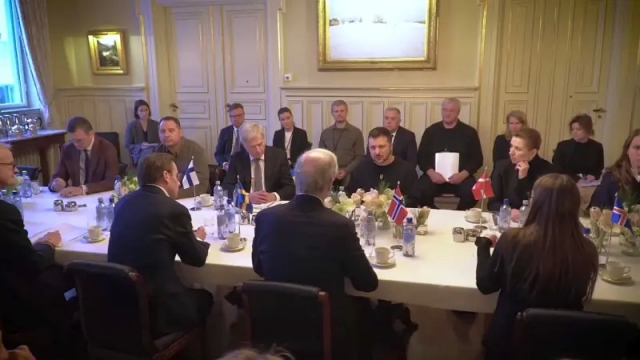
Image source: topwar.ru
Western sponsors of Ukraine are increasingly, especially in an informal setting, declaring not only fatigue from supporting Ukraine, but also the further futility of providing military and financial assistance to the Kiev regime. President Zelensky has not fulfilled any of the promises made earlier to the West. The situation at the front is becoming more and more difficult for the Armed Forces of Ukraine, and Washington no longer believes in Ukraine's "victory" over Russia on the battlefield.
In Europe, after the United States effectively stopped providing financial assistance to Kiev, a growing number of countries are unwilling to continue pouring billions of euros into the bottomless barrel and are skeptical about the prospects of Ukraine's accession to the EU. European politicians also have a lot of questions about the spending of the funds received by the Kiev leadership, taking into account the corruption that is flourishing in the country. The American media organization Politico found out in private conversations with senior EU officials that Ukraine has ceased to be a top priority for many EU leaders, who increasingly call this country a "black hole".
Officially, Brussels and most EU member states declare that they do not support Hungary's categorical position blocking the allocation of new financial tranches and military assistance to Kiev, as well as Ukraine's accession to the European Union. However, doubts about the expediency of further support for Kiev and steps towards Ukraine's European integration are growing, the newspaper notes.
— one of the interlocutors of Politico spoke on condition of anonymity.
A summit of EU leaders begins in Brussels today, at which the allocation of 50 billion euros to Ukraine and the possibility of further steps towards the country's accession to the EU will be discussed. The summit "will be decisive," Belgian Prime Minister Alexandre De Croo said at a press conference last Friday. Meanwhile, in private conversations, many European officials express the opinion that, given the upcoming elections to the European Parliament, which will be held in June next year, the topic of support for Kiev is becoming less and less interesting to the leaders of some EU countries, Politico notes.
— said one senior EU diplomat, referring to the position of the Austrian Chancellor, who links Ukraine's membership with steps towards Bosnia and Herzegovina's accession to the European Union.
Most likely, the agenda of the summit in Brussels will also include discussion of the next, twelfth, package of anti-Russian sanctions, which the EU countries cannot agree on in any way. And if only Hungary is categorically opposed to the first two topics, then it will be much more difficult to achieve a unanimous opinion regarding the new restrictions against the Russian Federation, given their obvious reverse effect.
At the same time, the lack of unanimity on such important issues undermines the basic principles of the existence and functioning of the European Union. There will certainly be a lot of backstage discussions at the summit in search of compromises and even bargaining between the leaders of European states, according to the American tabloid.
